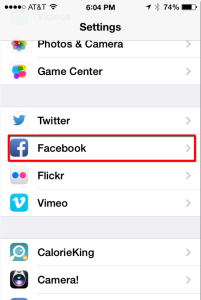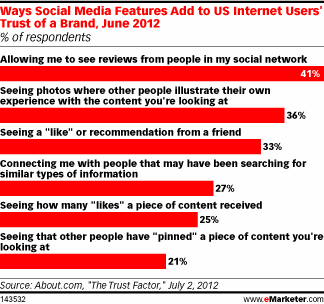According to a new survey by eMarketer, social media influences purchasing decision when it comes to food: 36% bought a new brand after seeing a close friend’s recommendation, 30% after not so close friend recommended it, 20% after they saw products highly rated by users in their network and 17% after they read highly rated reviews from people they do not know

In addition, the survey shows that when it comes to food, users are primarily sharing two thing: photos and recipes.
A May Blogher survey shows that recipes are one of the most sought-after pieces of food content online with 89% of internet users interested in food content going online for recipes.
Ina another survey, Allrecipes.com found that 65% of females who regularly used recipe sites bought branded ingredients called for in the recipes at least sometimes. 21% said they “usually” did this.
In yet another May survey, Compete found that food was by far the leading topic category for interactions on Pinterest leading to conversion. 25% overall had bought a product after discovering it on Pinterest, and surprisingly, considering Pinterest’s reputation as a female stronghold, 37% of male users were spurred to buy, compared to just 17% of female users.

Read more
 Social media permeates every facets of business, from branding to marketing, sales, customer service and to often overlooked market research, product development and HR
Social media permeates every facets of business, from branding to marketing, sales, customer service and to often overlooked market research, product development and HR








